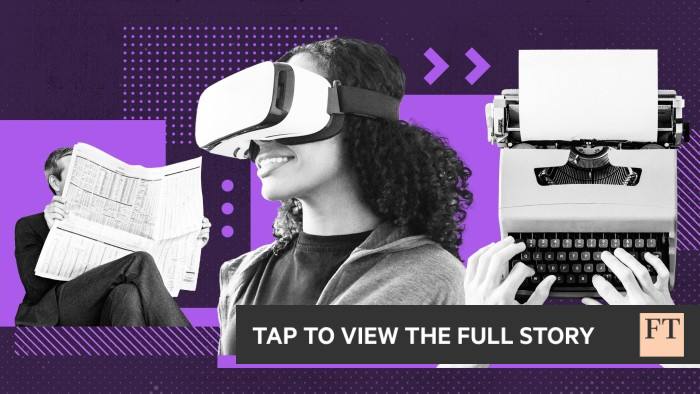Although the possibility of traditional media roles being entirely taken over by artificial intelligence (AI) is slim, the industry is undergoing rapid transformation due to AI’s influence. This transformation is poised to significantly impact the tasks and methodologies of journalists, broadcasters, creatives, and advertisers by introducing much-needed speed and efficiency.
Media firms, particularly news outlets, are increasingly embracing AI technologies to adapt to changing landscapes and address declining global revenues. Companies like Blizzard Entertainment, Walt Disney, and the New York Times are investing heavily in AI, recognizing its potential benefits. The global market for AI in media and entertainment was valued at nearly $15 billion in 2022 and is projected to grow at a rate of 18.4% between 2023 and 2030, according to Grand View Research.
“As we witness AI advancements reshaping the media industry, especially with the emergence of players like Meta and ByteDance altering content consumption patterns, media enterprises are leveraging AI tools to differentiate themselves and remain relevant in a dynamic business environment,” explains Michelle Sally, a partner at UK law firm TLT.
Impact on News, Drama, and Gaming Industries
AI’s applications in media encompass content creation, editing, and AI-assisted research, with speech-to-text technologies being particularly useful for tasks like providing on-screen captions or translations to streamline production processes. However, editorial and copywriting roles are at higher risk of being displaced or significantly transformed by AI, as noted by AI ethics advisor and scientist Ravit Dotan.
While AI has made inroads into automated journalism, particularly through the use of large language models (LLMs) for news generation and distribution, it is not a wholesale replacement for human journalists. AI tools are more likely to complement existing workflows rather than act as standalone “robo-journalists” in the foreseeable future, according to industry experts.
In creative industries such as filmmaking, gaming, and advertising, generative AI is increasingly utilized to enhance the customer experience, personalize content recommendations, and optimize ad targeting. Meta and Google offer tools to aid marketers in real-time ad campaign creation and targeting, raising concerns about the impact on advertising professionals and creatives.
Challenges and Opportunities in Media AI Implementation
Despite the advancements in AI technology, challenges persist, such as the generation of false information or misinformation by AI systems. This underscores the need for fact-checkers and ethics managers to ensure content authenticity and ethical standards. Partnerships between AI developers and media organizations could help mitigate these challenges by promoting the use of reliable content for AI training.
The evolution of generative AI raises questions about authorship, copyright protection, and intellectual property ownership of AI-generated content. As AI tools become more sophisticated, the role of ethics managers may become crucial in ensuring compliance with ethical norms in AI-generated content.
In conclusion, while AI presents both opportunities and threats to the media sector, adaptation and responsible AI utilization are key to navigating this transformative landscape effectively.










